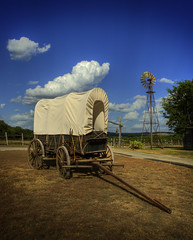 One of the things I like about this blog is that it keeps me honest. An example: Despite writing at the beginning of the month that technology was anything but a terror to me, I had never ventured into reading’s newest frontier -- e-books. I had good reasons, such as chronically dry eyes, insufficient cash flow to justify purchasing a Kindle and a library a couple blocks from my house. But when I wanted to read a particular out-of-print title, I had to choose between waiting weeks for interlibrary loan to come through, shelling out at the equally slow-moving Amazon Marketplace or having the whole thing at my fingertips after two minutes on the publisher’s Web site. It was no contest. I loaded up the wagon and struck out into the electronic wilderness.
One of the things I like about this blog is that it keeps me honest. An example: Despite writing at the beginning of the month that technology was anything but a terror to me, I had never ventured into reading’s newest frontier -- e-books. I had good reasons, such as chronically dry eyes, insufficient cash flow to justify purchasing a Kindle and a library a couple blocks from my house. But when I wanted to read a particular out-of-print title, I had to choose between waiting weeks for interlibrary loan to come through, shelling out at the equally slow-moving Amazon Marketplace or having the whole thing at my fingertips after two minutes on the publisher’s Web site. It was no contest. I loaded up the wagon and struck out into the electronic wilderness.Two prominent pluses of the new tech became apparent immediately: E-books excel when it comes to ease of purchase and storage. Comparisons to the iPod are immediate and more-than-a-little appropriate. A certain magic exists in being able to cart around an entire bookcase in the palm of your hand, to read on a whim genre or literature, biography or memoir, philosophy or theology. Ars Technica’s John Siracusa sees such handiness as the ultimate driver of e-book adoption: "Carry your entire reading list with you at all times. No loose bookmarks. No dog-eared pages. No rips, tears, or smudges. No shelf space required. No trip to the store. … Behold, the power of convenience and instant gratification!"
Yes, the convenience is wonderful, but -- and a "but" is inevitable, isn’t it? -- e-books have a way of transforming the simplest of tasks into chores. Ever riffled a paperback to find that interesting section you forgot to bookmark? It’ll take twice as long with an e-book. Ever wanted to fill fifteen minutes with a few pages? Good luck if you forgot to charge your batteries. Ever dropped a title on your tile floor? Kiss your reader of choice goodbye. Siracusa waves off such objections, concluding that electronic texts will replace paper ones as surely as the car surmounted the horse. "Books provide sensory/sentimental/sensual experiences that e-books can't match," he posits. "True! Cars just can't match the experience of caring for and riding a horse: the smells, the textures, the sensations, the companionship with another living being." But other than demonstrating his ignorance of equines -- anyone who has ever mucked out a ripe stall would know that "smell" isn’t one of the pluses of owning a horse -- all Siracusa’s suppositions prove is that consumers face opportunity costs when purchasing their reading material.
And what of this particular consumer? Will I remain a pioneer, abandoning the printed page for an LCD screen? Probably not. Storage isn’t an issue for me, and I sometimes like to read in the tub, which doesn’t really mix well with e-books. An occasional foray into the wilderness may prove fun, but in the end my heart is in my tattered wood-pulp home.
(Picture: CC 2008 by David A G Wilson; Hat Tip: Between Two Worlds)


4 comments:
Smell is a massive component of most memorable, enjoyable experiences--yes, even the "bad" smells associated with favorite animals. (But remember that animals have "good" smells, too.)
Well, this is awkward. Uh, thanks for stopping by!
My beef -- that's the wrong word, isn't it? -- with the horse analogy is a very personal one, I'm afraid. I grew up on a thoroughbred farm and spent far too much time at the business end of a pitchfork. Lot of good smells on that farm, but horse wasn't one of them.
This reminds me of one of Lewis's stranger moments: in Out of the Silent Planet, at some point he refers to the alien's defecation as being relatively pleasant, like horses'.
You mean the smell of it? Huh. Am I the only one who finds it decidedly unpleasant?
Post a Comment